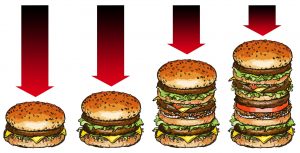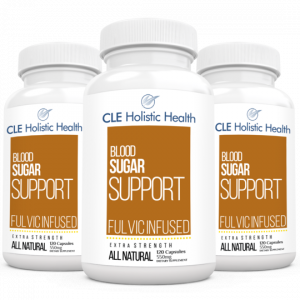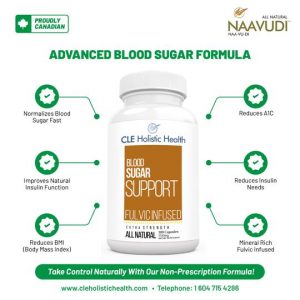The Staggering Connection Between Sugar, Chronic Inflammation, and Cancer
The Staggering Connection Between Sugar, Chronic Inflammation, and Cancer
Overview
Chronic inflammation causes cancer cells to multiply and grow at a much faster rate than healthy cells and usually consumes a huge amount of energy. This energy
There has been a lot of confusion about whether a high intake of sugar equals a high risk of cancer. And whether cutting down on sugar and carbohydrates can actually stop tumor growth. Scientists so far have not found any conclusive evidence to support this theory – except in the case of esophageal cancer.
While studies have ruled out any direct connection between sugar and cancer, experts agree that there is some evidence to suggest an indirect relationship. A diet high in added sugar may affect health in other ways, such as increased weight gain and insulin resistance – which can altogether increase low-grade chronic inflammation.
Research shows a strong link between chronic inflammation and cancer development. Chronic inflammation has been known to increase the risk of cancer, promote tumor progression, support the growth of new tumors, and increase resistance to therapies.
Inflammation: 9 Powerful Essential Oils for Healing Inflammation in the Body
Chronic Inflammation is the connecting dot
Inflammation is a part of our defense mechanism and an essential part of the healing process. When our body intercepts a foreign intruder, such as a thorn, pathogens (which includes bacteria, viruses, and other organisms), or irritants that cause infection, it initiates a biological response and tries to eliminate it by sending out an army of inflammatory cells.
These white blood cells trap the intruder and start healing the injured tissue. These cells also release some pro-inflammatory chemicals that help in dilating blood vessels, allowing more blood (and hence more immune cells) to reach the damaged tissue. This causes the area to feel hot, red, swollen, painful, or inflamed.
Inflammation can be of two types: short-term acute inflammation (as in when healing an injured tissue) and low-grade chronic inflammation. Chronic inflammation happens as a result of a false immune response – when the body is continuously sending inflammatory cells without a potential threat.
This is when inflammation becomes bad for our health – and this is exactly what happens when you eat too much sugar! Various lifestyle factors can cause this kind of systemic inflammation, such as an untreated infection, too much exposure to environmental toxins, eating too many inflammatory foods (which includes sugar and refined carbs), obesity, smoking, and chronic stress.
Research shows that chronic inflammation might be a silent killer that can go undiagnosed for years, slowly decaying and damaging your cells and putting you at an increased risk of various serious conditions like diabetes, heart diseases, stroke, autoimmune diseases, and cancer.
How sugar causes chronic inflammation

Obesity: A diet high in processed sugar and carbs is well-known to increase weight gain. Adipose tissues (fatty cells) in obese individuals can induce low-grade, persistent chronic inflammation while also reducing the production of adiponectin – an anti-inflammatory agent that is involved in fat breakdown and sugar metabolism. This sets up a vicious cycle where these three chronic problems (obesity, sugar, and chronic inflammation) keep reinforcing each other.
Increases LDL cholesterol: Unhealthy eating habits can increase bad cholesterol levels, which enhances the activation of false immune responses. According to a 2011 study, even low to moderate consumption of sweetened beverages can impair your body’s ability to process glucose and fats, resulting in an overall increase in LDL cholesterol, fasting sugar, and C-reactive proteins (an important inflammation marker).
Increases the production of AGEs: When proteins and fats interact with sugars in our bloodstream, they create pro-inflammatory compounds called advanced glycation end products (AGEs). High production of AGEs due to increased blood sugar levels has been shown to cause rapid cell aging and chronic inflammation.
Increases gut permeability: The gut microbiota of an obese person is very different from that of a lean person. According to a 2016 study, high sugar intake can negatively alter the gut microbial community, increasing the gut permeability. This may cause bacteria and toxins to escape into the bloodstream, thereby potentially triggering inflammatory responses. Interestingly, systematic chronic inflammation of the gut and altered microbiota further promotes obesity by increasing satiety-inducing signals.
High inflammation equals a high risk of cancer
Studies have shown that chronic inflammation may act as a driving force in tumor development and progression. In a 2018 study, researchers termed the relationship between sugar and inflammation as that of chicken and egg: high sugar intake causes obesity, obesity causes insulin resistance, insulin resistance triggers chronic inflammation, and chronic inflammation causes more insulin resistance – thereby increasing the risk of type-2 diabetes, high cholesterol, heart diseases, stroke, and some types of cancer.
Cancer: 8 Excellent and Healing Essential Oils Remedies for Fighting Cancer
Obesity and cancer
Though obesity does not directly cause cancer, being overweight or obese can put you at an increased risk of 13 types of cancer – according to the National Cancer
- Increased growth of cells: Fat cells are known to produce adipokine leptin, which promotes the secretion of growth hormones. These hormones send signals to the rest of the body to divide more often, raising the risk of tumor development.
- Increased estrogen level: After menopause, fat cells in obese women start producing an excess of estrogen hormone. High levels of estrogen have been known to be associated with an increased risk of breast and ovarian cancer.
- Inflammation: Low-grade chronic inflammation induced by obesity can cause DNA damage, supporting the initiation and progression of tumors.
Diabetes and cancer
According to a 2010 study, type-2 diabetes is a major risk factor for cancers of the liver, breast, colon, bladder, pancreas, and endometrium. People with diabetes either do not produce enough insulin or their bodies cannot use insulin properly – in both cases, increased blood sugar activates the false immune response and increases chronic inflammation. Researchers pointed out that other health problems that accompany diabetes, such as obesity and chronic inflammation, may increase the growth and survival rates of cancer cells while also suppressing the host’s anti-tumor immunity.
Final thoughts
While a high intake of added sugars and processed foods is not known to increase the risk of cancer, it may affect health in several ways. Obesity and diabetes – two well-known health risks of unhealthy eating – may increase low-grade chronic inflammation, which is a major risk factor for various types of cancer. Cutting down on added sugar, replacing refined carbs with whole grains and nutrient-dense foods, healthy sleeping habits, and regular exercise can go a long way in promoting a healthy lifestyle, which will naturally reduce the risk of serious health problems.
To Your Health!
References
https://www.frontiersin.org/articles/10.3389/fimmu.2011.00098/full
https://www.ncbi.nlm.nih.gov/pmc/articles/PMC6704802/
https://www.sciencedirect.com/science/article/pii/S107476131930295X
https://www.ncbi.nlm.nih.gov/pmc/articles/PMC5873875/
https://pubmed.ncbi.nlm.nih.gov/21677052/
https://pubmed.ncbi.nlm.nih.gov/7918300/
https://www.ncbi.nlm.nih.gov/pmc/articles/PMC5986486/
https://www.ahajournals.org/doi/10.1161/circulationaha.106.621854
https://www.cancer.gov/about-cancer/causes-prevention/risk/obesity/obesity-fact-sheet



























4 Comments
[…] Eating late at night can disrupt blood sugar […]
[…] you can do to your body. As more and more people are now recognizing this and trying to cut back on added sugar, artificial sweeteners are increasingly popular. They are commonly used as food additives in […]
[…] tea for cancer: The story of a fascinating […]
[…] you Know Inflammatory Foods can cause damage – Inflammation is what helps you heal when you are injured or down with an infection. However, not all […]